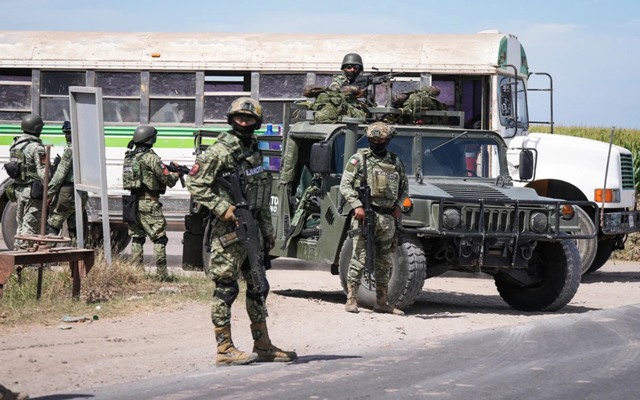News Flash

CULIACÁN, Mexico, Sept 10, 2025 (BSS/AFP) - A bloody year-long war for control of the world's most powerful drug cartel has killed 1,700 people in the Mexican state of Sinaloa.
Now a new threat looms -- US airstrikes.
Gunfights, decapitations, shuttered schools and bodies dangling from bridges -- the deployment of thousands of Mexican troops has failed to staunch the bleeding in the once-bustling city of Culiacan, where locals live in fear.
"Before, we could celebrate our son's birthday every year, invite his cousins, have them play in a pool or set up a pinata and a cake," said 35-year-old mother Karely Contreras.
"Now we do something very private at home, because we don't know what could happen."
The city was plunged deep into chaos a year ago when a power struggle emerged within the Sinaloa Cartel.
Perhaps the most powerful cartel in the Americas, El Cartel de Sinaloa operates in dozens of countries and controls a large portion of the global trade in fentanyl, methamphetamine and cocaine.
The cartel's leaders are household names in Mexico and beyond -- Joaquin "El Chapo" Guzman, Ismael "El Mayo" Zambada.
A split within the cartel emerged when El Chapo's son allegedly double-crossed Zambada.
- Locals long for peace -
Tit-for-tat attacks have since left 1,700 dead and almost 2,000 disappeared, according to official figures.
Rafael Sanchez, 44, lost his brother Juan Carlos to the violence.
The restaurant entrepreneur was caught in a shootout between gunmen and soldiers in a wealthy area of Culiacan.
Many locals have had enough. Dressed in white, with slogans like "enough, we demand peace!" thousands marched in Culiacan on Sunday, carrying portraits of the missing.
Some are worried that the government's failure to curb cartel violence could prompt US President Donald Trump to step in.
Trump has declared war on Latin American drug traffickers and declared the Sinaloa Cartel a "terrorist" organisation.
He has sent several warships toward nearby Venezuela, accusing the government of being part of the drug trade, and ordered a missile strike on a suspected drug boat, killing 11 people.
Mariana Urias, a 34-year-old department store worker in Culiacan, witnessed a shootout near her home last week and fears Trump could turn his attention to Sinaloa.
"They certainly have the will and plenty of reasons," she said, afraid her children may witness "a real war with bombs and missiles."
Tensions are also palpable in the Sinaloa town of Badiraguato, birthplace of El Chapo.
"US agents are already operating in Sinaloa (...), observing how the drug traffickers move," a municipal official, who spoke on condition of anonymity for his safety, told AFP.
- Cost of US intervention -
But analysts point to the mixed results of recent US interventions as a cautionary tale.
Culiacan's troubles intensified when Zambada was lured by one of El Chapo's sons onto a US-bound plane that deposited them both into American jails.
Cecilia Farfan, a researcher for the Global Initiative Against Transnational Organized Crime, said the war unleashed by Zambada's capture shows how volatile the situation is.
"It's a good example of why cooperation is necessary," she said.
Mexican President Claudia Sheinbaum has made strenuous efforts to head off the threat of US strikes by showing Trump she is acting against the cartels.
Over the past seven months, her administration has extradited 55 senior cartel leaders and other fugitives to the United States to face justice.
In December, she responded to demands by then president-elect Trump to act on drug trafficking with the seizure of over a ton of fentanyl pills in Sinaloa.
So far, her efforts seem to be paying off.
On a visit to Mexico last week US Secretary of State Marco Rubio praised Sheinbaum's record and signed an agreement obliging both countries to respect each other's sovereignty in the war on drugs.
"It is the closest security cooperation we have ever had maybe with any country but certainly in the history of US-Mexico relations," Rubio said.